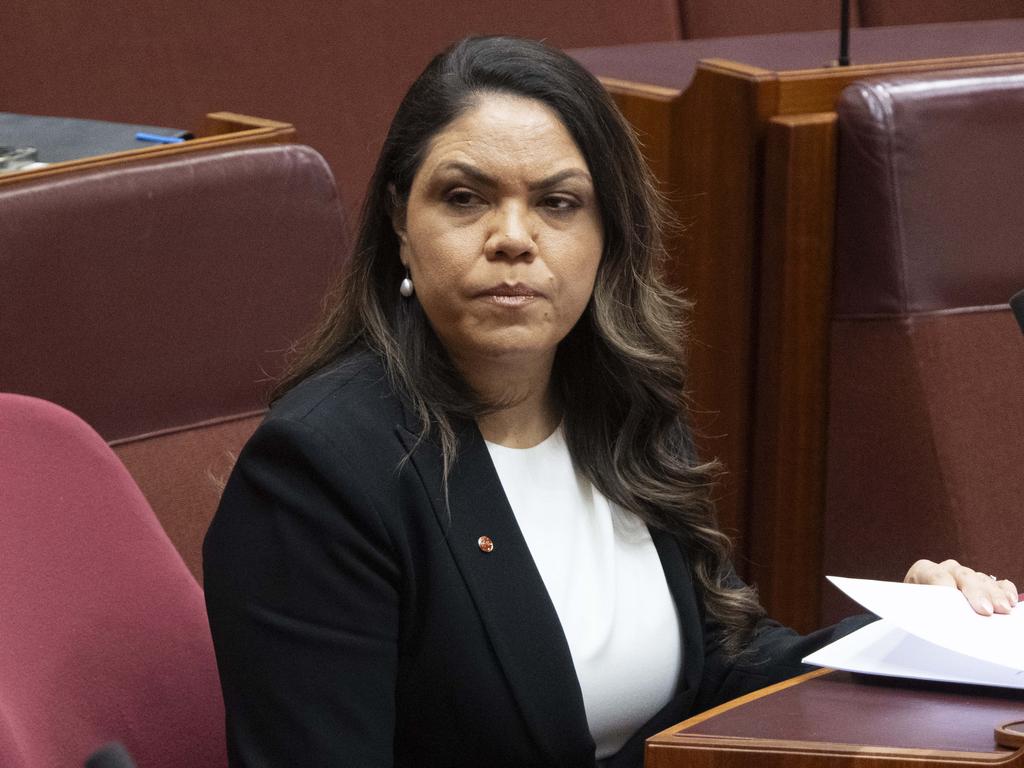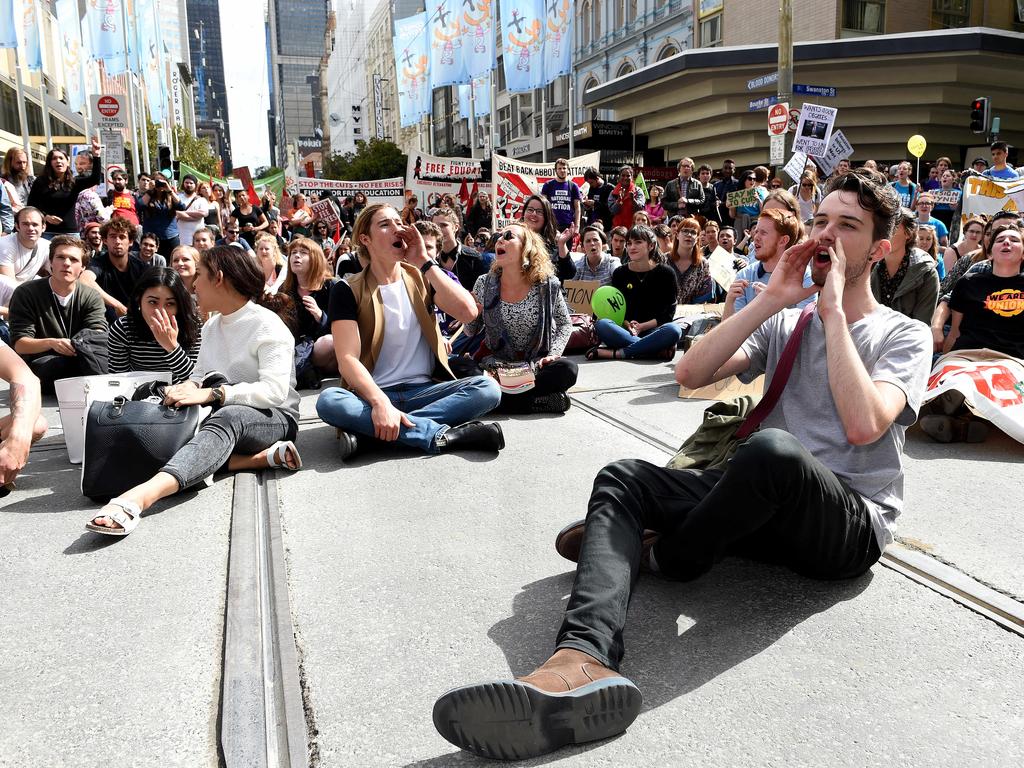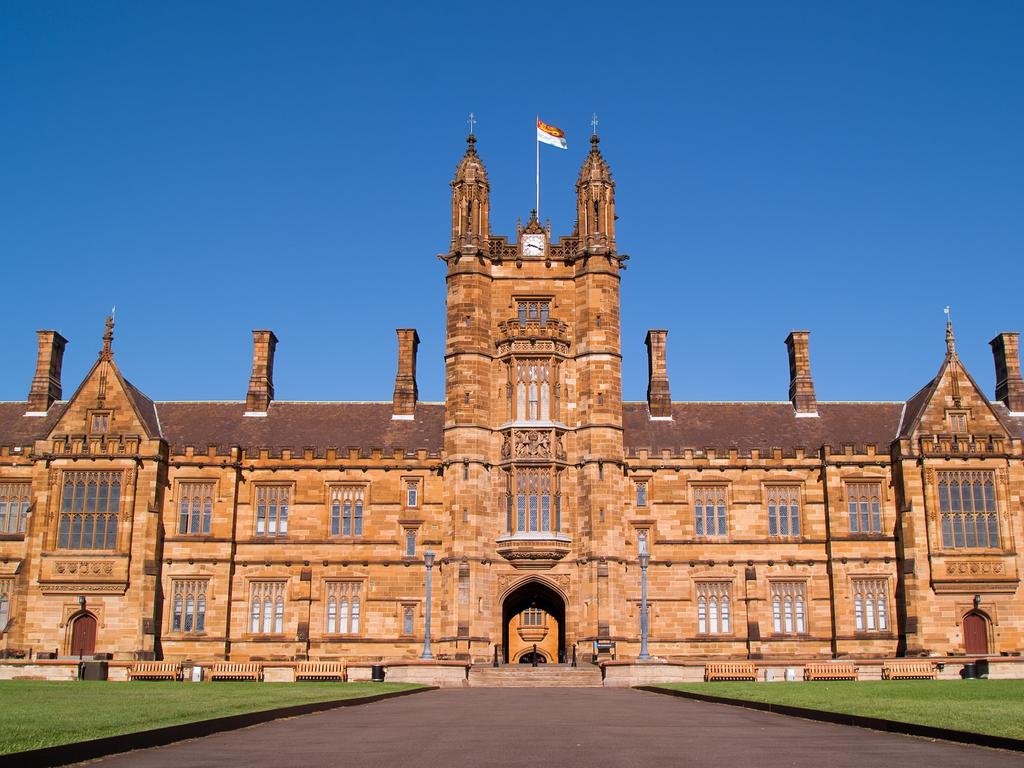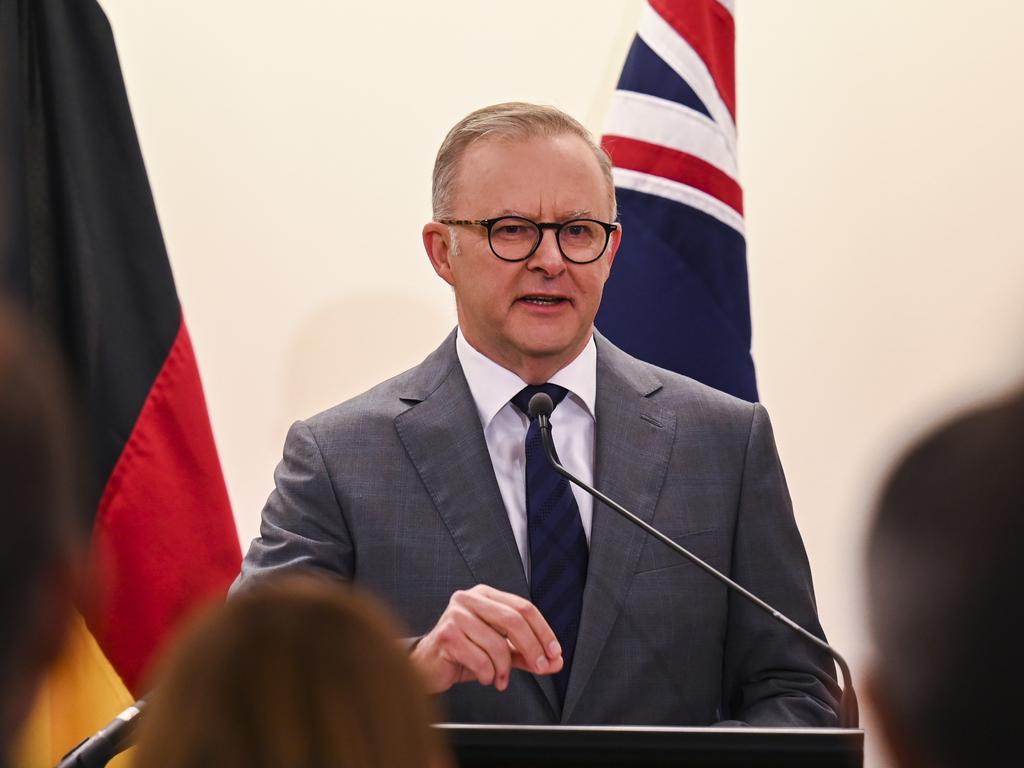On campus, there is no room for dissenting views on Indigenous voice to parliament

Let me use the upcoming constitutional referendum on the voice to illustrate. Recent polls show the No side has a considerable lead. I mention these polls of the wider public’s view simply to contrast it with the very different world on our campuses. Many Australian universities officially have come out in favour of the Yes side and have done so despite the two main political parties taking opposite sides in the referendum – thereby making this a party-political matter and so the taking of sides by any publicly funded university, in part, a choosing by them and their governing boards between the political positioning of the two main parties. The University of NSW even has lit up one of its main buildings with a big “Yes”, emblematically transmogrifying the institution’s name into “UNYesW”.
It’s bad enough when big corporations use shareholder money to support one side in this referendum (virtually always the Yes side, and to the tune of tens of millions of dollars), and likewise when charities do so (arguably calling into serious question whether they are straying outside their charitable purposes, and also huge amounts of money virtually all to the pro side). But when taxpayer-funded universities use your tax dollars to take a side on a crucial constitutional referendum issue that splits the country, well, that’s even worse. It’s not just a form of virtue signalling with other people’s money; it comes close to being an improper use of taxpayer money.
Now, truth be told, some of our universities have opted not to support the Yes side. They’ve opted to stay officially neutral. Needless to say, neutrality is the best we can hope for. You see, I don’t know of a single Australian university, not one, that has come out for No. And this despite plenty of our tertiary institutions breaking cover to support the Yes side. Heck, it’s despite the majority of polled voters being against this proposal.
Now move down to a more granular level, to what things are like on campus. As a longtime out-of-the-closet political conservative (and cards on the table here, an outspoken No proponent from day one), I get a fair few people calling me to tell me what things are like on campuses around the country. Get this: most universities seem to have decided to put on “information sessions” about the voice.
I do not know of a single university that is putting on one of these events where there are the same number of No speakers as those for Yes on these panels. By contrast, I do know of a good few where every single speaker is (or, if you look up the resume, sure seems likely to be) a Yes speaker.
Let that sink in for a moment. It’s wall-to-wall supporters of the voice supposedly giving students some sort of balanced information about the voice. It would be laughable, if it weren’t. And if you query this you get this sort of basic answer: “We’ve briefed one of the speakers to give the No side.” Got that? Because the great free-speech philosopher John Stuart Mill is rolling in his grave.
No one can seriously believe that a person strongly committed to one side of a highly contentious and moralised issue can do even a half-decent job of giving the other side’s case.
Moreover, when a university purports to be giving a disinterested information session to faculty and students where the views expressed cover the whole range of outlooks from A all the way still to A (“Getting to Yes”, as it were), students and faculty notice. Many will say nothing; they’ll self-censor; they’ll think about what is most prudential given the upcoming promotion application or essay to hand in. And they’ll keep shtum.
I’m going to be blunt. Today’s universities are not overly congenial places for those with conservative political views. There are myriad studies out of the US and Britain showing that viewpoint diversity is collapsing on university campuses – because maybe, for a start, those with right-of-centre views would prefer we flew just the national flag, that there be some respite from the incessant acknowledgments of country, and to see the paring back of the diversity, equity and inclusion bureaucracy that forces everything to be seen through the prism of identity politics.
US author Jonathan Haidt, himself of the centre-left, details this loss of diverging outlooks on campus chapter and verse, and greatly laments it. Because universities aren’t meant to be factories of monolithic orthodoxy and groupthink. But more and more that is exactly what we’re seeing. If you doubt me, maybe because your memory of university life goes back three decades or more, go and find out how your old university is handling the voice referendum issue. And realise just how much of the Yes case is being run by employees of universities (second spoiler alert: nearly all of it).
Of course, when the progressive-left orthodoxies become held by the preponderance of academics and near-on all the senior managers, that also affects free speech on campus. You won’t see it by looking at university codes of conduct, policies, statutory frameworks and the like. The collapse of viewpoint diversity works more indirectly and insidiously. Many dissenters and apostates from the university orthodoxy (students included) learn to self-censor, to keep quiet, to ride out the one-sided indoctrination sessions (aka, on occasion, voice “information sessions”). Or they quit and do something else. In the context of institutions supposedly dedicated to the free flow and competition of ideas it’s a sad state of affairs.
James Allan is Garrick professor of law at the University of Queensland.







Some readers may harbour a sneaking suspicion that Australia’s universities have a serious problem with collapsing viewpoint diversity among their professors and lecturers, to the extent that whole departments on campus have become conservative-free zones. They also may suspect that many university students, as well as academics, self-censor and keep their dissenting views to themselves. Spoiler alert: these suspicions are well founded.